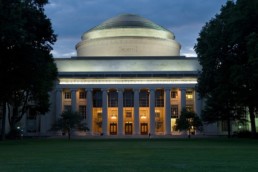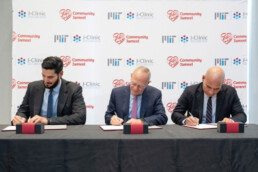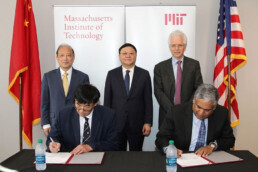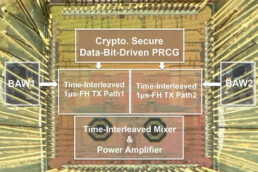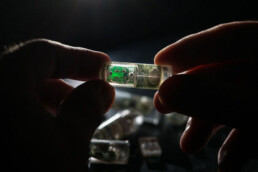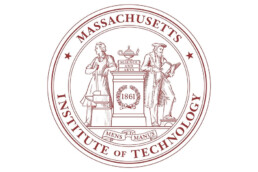Anantha Chandrakasan to join the Analog Devices Board of Directors
Analog Devices, Inc. (Nasdaq: ADI), a global leader in high-performance semiconductors for signal processing applications, today announced that its Board of Directors has appointed Anantha Chandrakasan as an independent director on the Board, effective January 1, 2019. Dr. Chandrakasan is dean of MIT’s School of Engineering and the Vannevar Bush Professor of Electrical Engineering and Computer Science. In addition, Dr. Chandrakasan co-chairs the MIT–IBM Watson AI Lab and chairs the MIT-SenseTime Alliance on Artificial Intelligence and J-Clinic, the Abdul Latif Jameel Clinic for Machine Learning in Health at MIT.
"We are honored to welcome Anantha to the ADI Board. His impressive work at MIT and expertise in technologies that are shaping the future of information and communication, business, and indeed, society will be of great value to ADI," said Ray Stata, ADI Chairman of the Board. “We look forward to his contributions to the Company.”
Gift of $350 million establishes the MIT Stephen A. Schwarzman College of Computing
MIT reshapes itself to shape the future
Abdul Latif Jameel Clinic for Machine Learning in Health at MIT aims to revolutionize disease prevention, detection, and treatment.
A key part of the MIT Quest for Intelligence, J-Clinic builds on MIT expertise across multiple scientific disciplines.
Today, MIT and Community Jameel, the social enterprise organization founded and chaired by Mohammed Abdul Latif Jameel ’78, launched the Abdul Latif Jameel Clinic for Machine Learning in Health (J-Clinic). This is the fourth major collaborative effort between MIT and Community Jameel, which was represented by Fady Jameel, president of Community Jameel International, and Hassan Jameel, president of Community Jameel Saudi Arabia.
More efficient security for cloud-based machine learning
Novel combination of two encryption techniques protects private data, while keeping neural networks running quickly.
A novel encryption method devised by MIT researchers secures data used in online neural networks, without dramatically slowing their runtimes. This approach holds promise for using cloud-based neural networks for medical-image analysis and other applications that use sensitive data.
Outsourcing machine learning is a rising trend in industry. Major tech firms have launched cloud platforms that conduct computation-heavy tasks, such as, say, running data through a convolutional neural network (CNN) for image classification. Resource-strapped small businesses and other users can upload data to those services for a fee and get back results in several hours.
But what if there are leaks of private data? In recent years, researchers have explored various secure-computation techniques to protect such sensitive data. But those methods have performance drawbacks that make neural network evaluation (testing and validating) sluggish — sometimes as much as million times slower — limiting their wider adoption.
MIT and SUSTech announce Centers for Mechanical Engineering Research and Education at MIT and SUSTech
Two centers located in Shenzhen, China, and Cambridge, Massachusetts, will facilitate collaborative research opportunities.
MIT and the Southern University of Science and Technology (SUSTech) in Shenzhen, China, have announced the launch of the Centers for Mechanical Engineering Research and Education at MIT and SUSTech. The two centers, which will be located at MIT and SUSTech, aim to foster research collaborations and inspire new approaches to engineering education.
At a ceremony on June 15, Anantha P. Chandrakasan, dean of engineering at MIT and the Vannevar Bush Professor of Electrical Engineering and Computer Science, and Zhenghe Xu, dean of engineering at SUSTech, signed an agreement establishing the two centers. They were joined by faculty from both MIT’s Department of Mechanical Engineering and SUSTech as well as representatives from the local Shenzhen government.
“This research and educational collaboration will give MIT’s faculty and students the opportunity to benefit from a wider range of research and engage in a discussion on how to best train mechanical engineers,” says Gang Chen, the Carl Richard Soderberg Professor of Power Engineering and head of the Department of Mechanical Engineering, who will serve as faculty director for the MIT center. Professor Zhenghe Xu will serve as faculty director of the SUSTech center.
Novel transmitter protects wireless data from hackers
Device uses ultrafast “frequency hopping” and data encryption to protect signals from being intercepted and jammed.
Today, more than 8 billion devices are connected around the world, forming an “internet of things” that includes medical devices, wearables, vehicles, and smart household and city technologies. By 2020, experts estimate that number will rise to more than 20 billion devices, all uploading and sharing data online.
But those devices are vulnerable to hacker attacks that locate, intercept, and overwrite the data, jamming signals and generally wreaking havoc. One method to protect the data is called “frequency hopping,” which sends each data packet, containing thousands of individual bits, on a random, unique radio frequency (RF) channel, so hackers can’t pin down any given packet. Hopping large packets, however, is just slow enough that hackers can still pull off an attack.
Now MIT researchers have developed a novel transmitter that frequency hops each individual 1 or 0 bit of a data packet, every microsecond, which is fast enough to thwart even the quickest hackers.
Ingestible “bacteria on a chip” could help diagnose disease
Ultra-low-power sensors carrying genetically engineered bacteria can detect gastric bleeding.
MIT researchers have built an ingestible sensor equipped with genetically engineered bacteria that can diagnose bleeding in the stomach or other gastrointestinal problems.
This “bacteria-on-a-chip” approach combines sensors made from living cells with ultra-low-power electronics that convert the bacterial response into a wireless signal that can be read by a smartphone.
“By combining engineered biological sensors together with low-power wireless electronics, we can detect biological signals in the body and in near real-time, enabling new diagnostic capabilities for human health applications,” says Timothy Lu, an MIT associate professor of electrical engineering and computer science and of biological engineering.
In the new study, appearing in the May 24 online edition of Science, the researchers created sensors that respond to heme, a component of blood, and showed that they work in pigs. They also designed sensors that can respond to a molecule that is a marker of inflammation.
Letter regarding The Engine Working Groups final report
Ultra-low-power sensors carrying genetically engineered bacteria can detect gastric bleeding.
The following email was sent today to the MIT community by Provost Martin A. Schmidt.
To the members of the MIT community:
I am writing to share the final report of The Engine Working Groups.
At the beginning of last year, I charged five MIT working groups and an advisory committee, led by School of Engineering Dean Anantha P. Chandrakasan, to guide the development of Institute policies and procedures for engaging with The Engine. The Engine, an external innovation accelerator, was launched by MIT to help start-ups working on capital- and time-intensive technologies access long-term funding, workspaces, equipment, services, and entrepreneurial expertise needed to bring their ideas from inception to the marketplace. The official opening of The Engine took place in September.
Sixty-two members of the MIT community, including faculty, students, postdocs, and staff, have participated in this effort organized around the following working groups: 1) Facilities Access, chaired by Professor Martin Culpepper; 2) New Models for Technology Licensing, chaired by Professor Timothy Swager; 3) Conflict of Interest, chaired by Professor Klavs Jensen; 4) Visas for MIT Entrepreneurs, chaired by Professor Dick Yue; and 5) MIT’s Innovation Ecosystem, co-chaired by Professors Vladimir Bulović and Fiona Murray.
I shared a preliminary report with the community in June and have since received additional input and feedback from faculty, students, and staff. This final report includes recommendations based on months of activity, including campus-wide engagement, such as a forum on the preliminary recommendations last spring and a session during the faculty meeting this past October. I have reviewed the report’s findings with President Rafael Reif, Vice President for Research Maria Zuber, and Executive Vice President and Treasurer Israel Ruiz.
We have prioritized the recommendations and developed an implementation framework that will be facilitated by the MIT Innovation Initiative and its co-directors, Professors Michael Cima and Fiona Murray. Key activities include the creation of a function within the MIT Innovation Initiative to oversee the overall interface between MIT and The Engine, the development of new standard agreements for technology licensing and intellectual property (IP), the formation of an Institute-level Conflict of Interest committee, engagement through the Boston University Entrepreneurship and IP Law Clinic to help international entrepreneurs obtain legal advice on immigration matters, and the creation of a pilot master’s of innovation degree that provides students a clear program of innovation and entrepreneurial offerings—including The Engine—and allows international students to pursue entrepreneurial endeavors.
I am grateful to Professors Cima and Murray for their leadership of this next phase, and as we move forward with implementation, we will continue to look to the MIT community for input and feedback.
I would like to extend my sincere gratitude to Dean Chandrakasan, the Advisory Committee, and the Working Group chairs and members for their creative insights, ideas, and hard work. I am eager to see how these ideas will allow MIT and The Engine help young companies develop transformative innovations toward making a better world.
Sincerely,
Martin A. Schmidt

